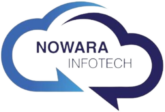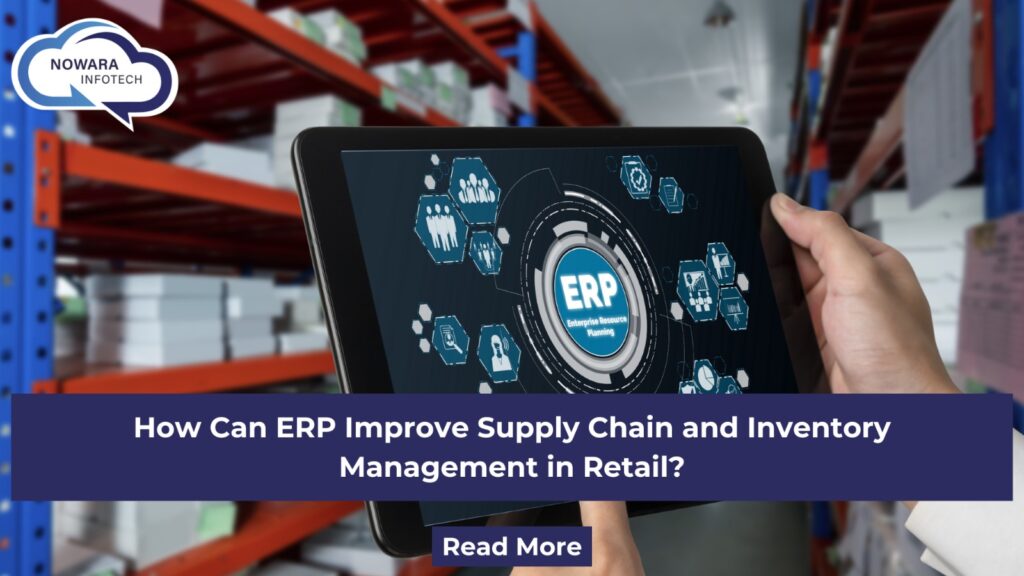Retail businesses today are facing one of their biggest challenges: unpredictable supply chains and inefficient inventory management. With shifting consumer demand, supply chain disruptions, and the rise of omnichannel retail, 43% of retailers report struggling with inventory visibility across multiple channels—leading to costly stockouts or excess inventory.
The solution? A powerful ERP system for retail businesses that provides real-time insights, automation, and seamless coordination between suppliers, warehouses, and stores.
Let’s explore how ERP is redefining retail operations by streamlining supply chain and inventory management.
Eliminating the Guesswork with Retail ERP
Retailers deal with complex supply chains, vendor coordination, and fluctuating customer demands. An ERP system for retail businesses centralizes data, ensuring real-time inventory tracking, automated stock replenishment, and optimized logistics.
- 80% of supply chain professionals say digital transformation, including ERP, has improved their efficiency. (Gartner)
- Retailers using Microsoft Dynamics 365 for Retail report up to 30% reduction in inventory carrying costs.
- By integrating ERP for the retail industry, businesses gain full control over their supply chain, reducing manual errors and improving demand forecasting.
From Overstock to Stockouts: Why Your Retail Business Needs an ERP Makeover
Without a robust ERP system, retail supply chains suffer from inefficiencies, mismanaged stock levels, and delayed order fulfillment. Here’s why adopting an ERP software for retail business is a game-changer:
- Prevent Costly Stock Disruptions: Avoid overstocking and stockouts with real-time inventory tracking.
- Accelerate Order Fulfillment: Automate purchase orders and supplier coordination.
- Slash Operational Costs: Cut excess storage costs and optimize procurement with demand forecasting.
- Deliver a Seamless Customer Experience: Ensure products are always available when customers need them.
Who Wins with ERP? The Retail Players Benefiting the Most
From small retailers to global chains, ERP software for retail business benefits various stakeholders:
- Retail Owners & Executives: Gain real-time insights into sales, inventory, and supply chain performance.
- Inventory Managers: Automate stock replenishment and optimize warehouse space.
- Supply Chain Teams: Improve supplier collaboration and reduce lead times.
- Store Managers: Access accurate stock data across multiple locations.
Retailers should consider implementing an ERP system for retail businesses if they experience:
- Frequent inventory mismatches or stock inaccuracies.
- Manual, time-consuming inventory tracking.
- Delayed supplier deliveries affecting sales.
- High operational costs due to poor supply chain visibility.
- According to Deloitte, businesses implementing ERP see a 20-30% improvement in supply chain efficiency within the first year.
The ERP Edge: Where Retailers Gain the Most from ERP Implementation
Implementing Microsoft Dynamics 365 for Retail or other ERP solutions improves several areas:
- Inventory Accuracy & Control: Real-time stock tracking prevents shortages and surplus.
- Warehouse Optimization: Smart warehouse management systems reduce storage costs.
- Omnichannel Synchronization: Sync online and offline stores for seamless inventory updates.
- Vendor & Supplier Automation: Improve procurement processes and build better vendor relationships.
The ERP Blueprint: How to Successfully Implement ERP in Your Retail Business
Choosing the right ERP software for retail business requires careful planning:
- Identify Supply Chain Pain Points: Assess your biggest inventory challenges.
- Select a Scalable ERP Solution: Look for a system that grows with your business.
- Work with ERP Experts: Partner with experienced providers like Nowara Infotech.
- Train Your Team for Adoption: Ensure seamless onboarding and efficient use.
- Monitor & Refine Performance: Use data analytics to optimize supply chain management.
The Competitive Advantage: Why Leading Retailers Rely on ERP
Retail success depends on an efficient, well-managed supply chain and inventory system. ERP for the retail industry, especially solutions like Microsoft Dynamics 365 for Retail, empowers businesses with automation, real-time analytics, and cost-saving strategies.
Is your retail business ready for the next level of efficiency? Nowara Infotech specializes in ERP solutions tailored for retail businesses. Contact us today and take the first step toward higher profitability, smarter inventory management, and operational excellence!

